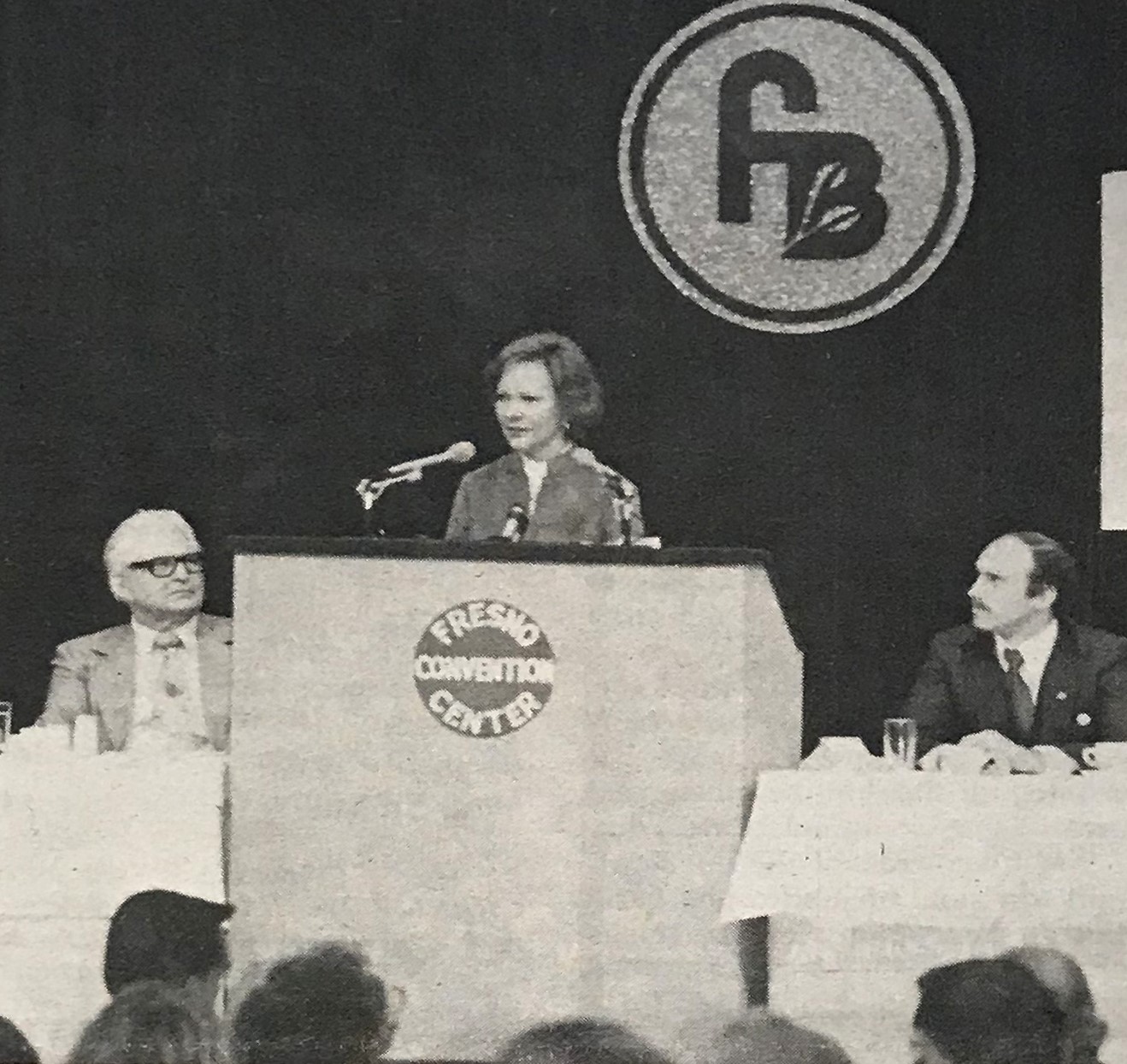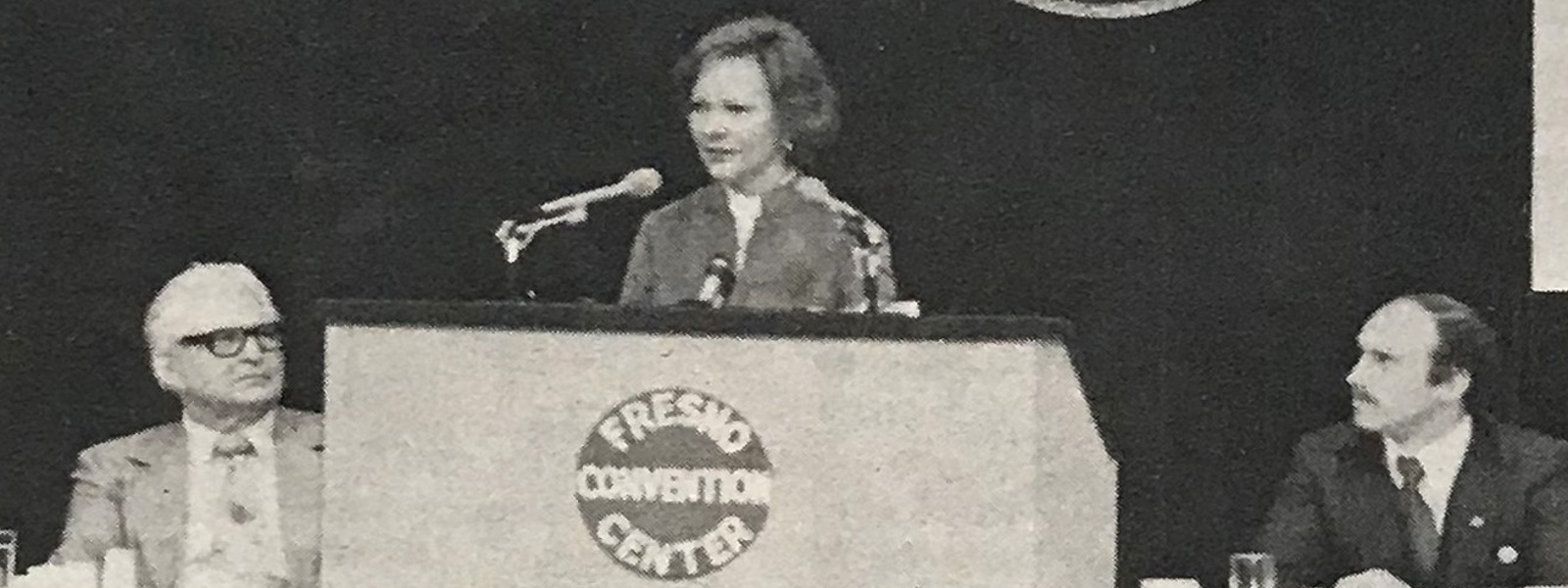Reflecting on first lady Rosalynn Carter


Eleanor Rosalynn Carter, first lady of the United States from 1977 to 1981, died Nov. 19, at the age of 96. She was wife to 39th President Jimmy Carter, a farmer from Georgia.
The nation has spent the past few weeks remembering the first lady for her decades of public service, advocacy for women’s rights and mental health, her work as an author, and as a wife and mother.
On Feb. 8, 1980, Rosalynn Carter addressed California farmers and ranchers at a meeting of the California Farm Bureau Federation at the convention center in Fresno. Her appearance is recalled by Mike Durando, a U.S. Department of Agriculture deputy administrator of the Fair Trade Practices Program, who, at the time, helped organize the event while working as a CFBF field crops specialist.
“With Mrs. Carter’s passing, I had already been remembering that exciting time in 1980,” he said. “It was a privilege to be part of the effort that contributed to the conference.”
Scott Morse, former manager of the CFBF Commodities Services Division, said the gathering drew some 1,000 California farmers from 56 county Farm Bureaus “representing most everything produced in the state.”
“First lady Rosalynn Carter did a great job representing the president,” Morse said. “(CFBF President) Fred Heringer said at the dinner afterward that it was the greatest day in the history of CFBF, and it brought the farmer and rancher forces of CFBF together.”
Ag Alert® reported on the event in a Feb. 13, 1980, article. Here is the text of the story:
Substituting for the president of the United States can be a hard act to follow, but first lady Rosalynn Carter, who is familiar with the task by now, filled in for the chief executive at the California Farm Bureau Federation Commodity Conference in Fresno Feb. 8.
Addressing a combined lunch in the Fresno Convention Center, Mrs. Carter said the president could not attend because he stayed in the White House to work on the situations in Afghanistan and Iran.
“He has taken firm action to punish the Soviet Union, including the suspension of grain sales,” she said. “He stopped those shipments because he considered this one of the most punishing actions he could take. But he was determined that the farmers would not have to suffer unfairly, so he has taken steps.”
She appealed to the California audience by noting that a temporary trading suspension of agricultural specialty crops, mostly grown in this state, has been lifted.
“As you already know, he has resumed trading in those specialty products that are so important to you,” she said.
Mrs. Carter also talked of the president’s farm policy, noting that “there is no other sector more important to the overall well being of our economy.”
“I’m pleased that his farm policy is beginning to have some of the effects that he sought,” she said. “Commodity prices and farm income are beginning to stop falling as they were when he took office and are headed up—not as much as he would have hoped, but they are headed in the right direction.”
Robert Strauss, Carter’s campaign chairman and Special Trade Representative, also appeared before the luncheon group.
In introducing Strauss, CFBF President Fred Heringer praised Strauss for his efforts on behalf of California specialty crops during the recently concluded trade talks in Geneva.
Strauss said the recent trade agreement benefited agriculture as a whole more than any other area, “particularly the interests of California (agriculture) more than any other sector in our economy.”




